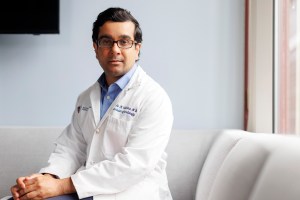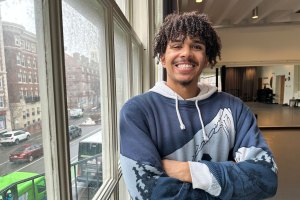Health
-
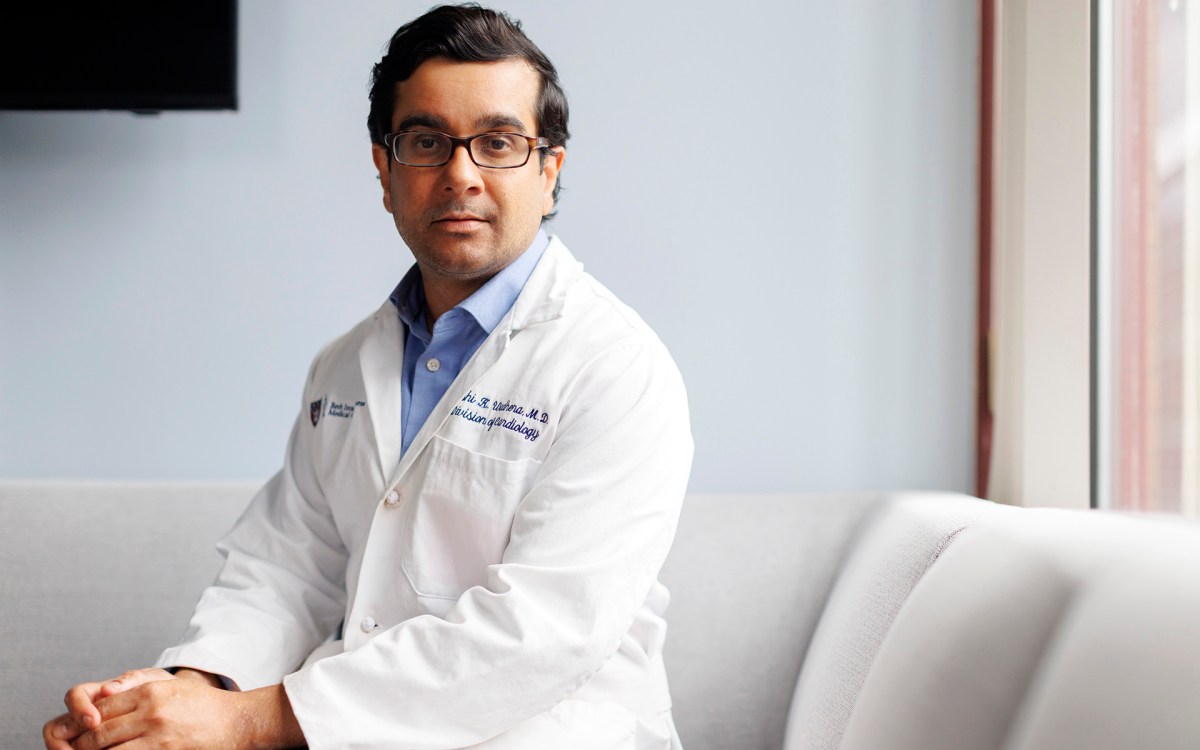
American heart health worsening
New statistical snapshot finds disappointing trend despite advances in treatment, ways to prevent nation’s leading cause of death

-
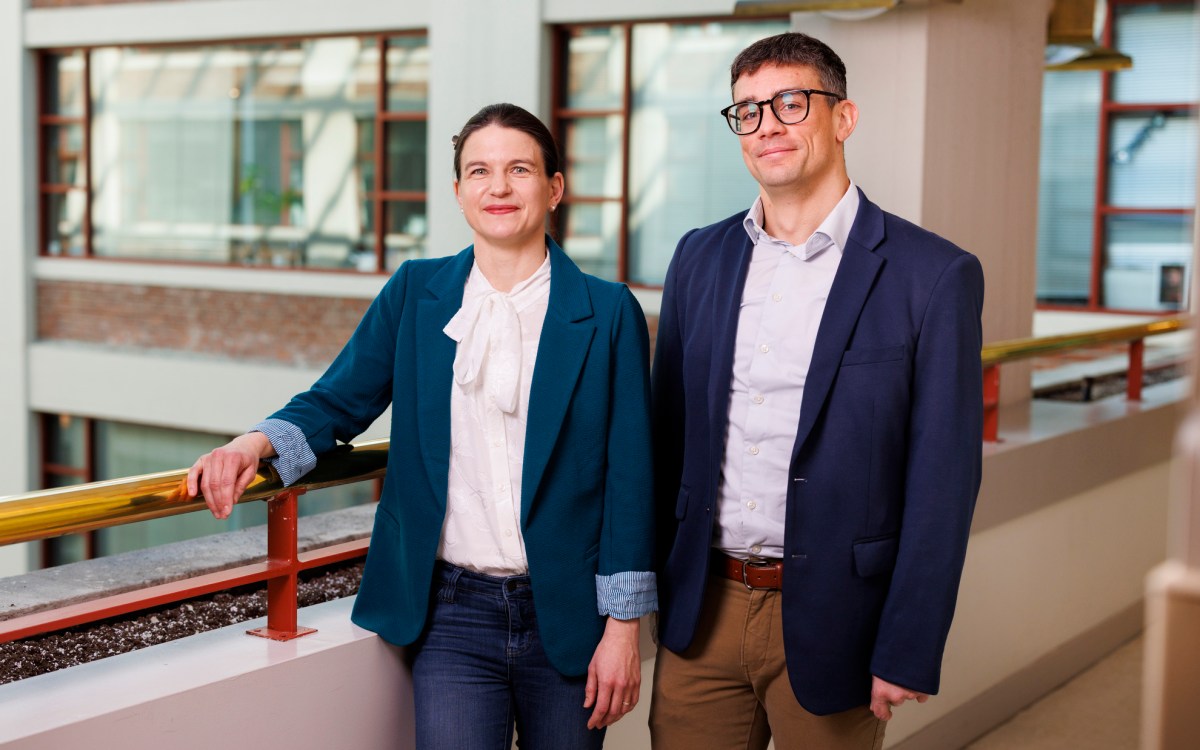
Tracking mysteries of loss of Y chromosome, cancer
Research suggests it may explain higher incidence, severity of some disease in men
-
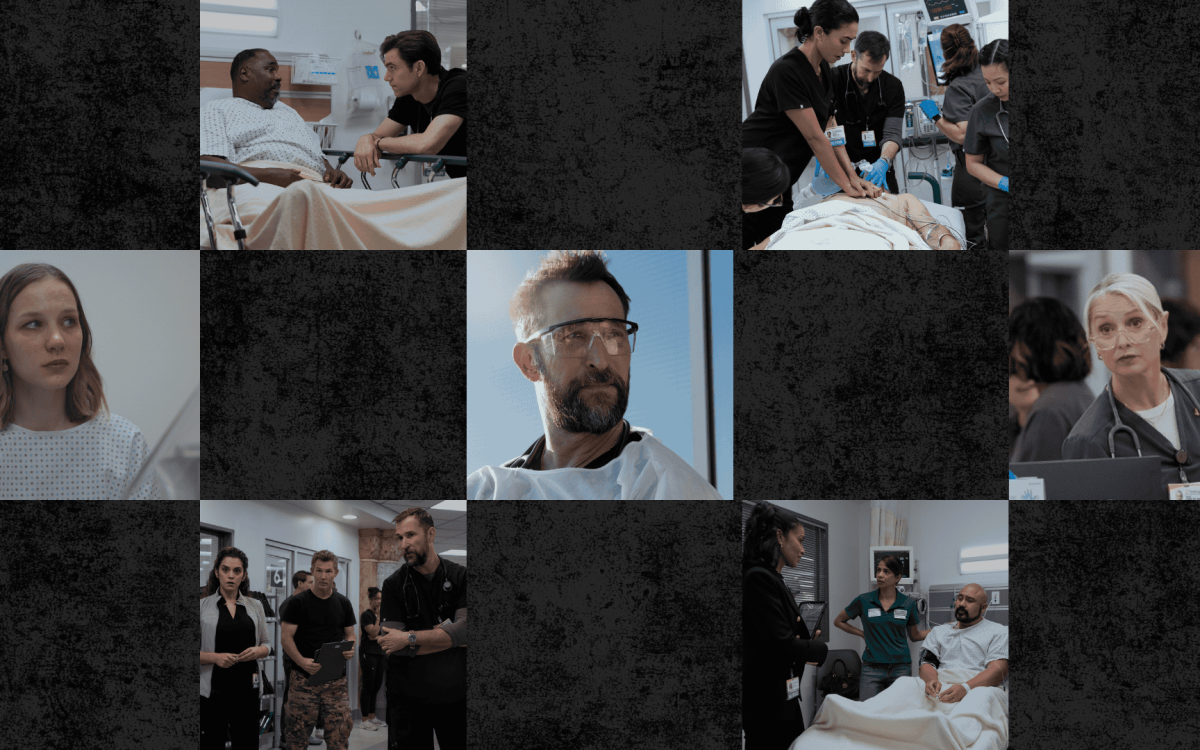
How realistic is ‘The Pitt’?
Doctors weigh in on what hit TV show gets right and wrong about life in the ER — from pacing and caseloads to workplace culture (and that waiting room from hell)
-

Yoga can help cut severe, initial opioid-withdrawal period in half, study finds
Researchers say results could dramatically increase chances of recovery
-

6 keys to a long, healthy life (ice cream included)
Also, why reading Ben Franklin beats climbing Mount Everest
-

Six cancers rising faster in younger adults than older ones
Large new global study fuels growing concern over trend of increases in several types

-
Researchers uncover remaining critical insulin gene regulatory factor
Scientists have known the identity of two genes that can influence the ability of insulin genes to trigger insulin production in the beta cells of the pancreas. Through subsequent research…
-
New molecular model increases longevity and could allow you to eat cake, too
Scientists have known about the longevity benefits of caloric restriction since experiments in the 1930s showed that rats lived much longer if their food intake was severely restricted. Broadly speaking,…
-
Sea squirt cancer drug under test
In the United States, researchers at three Harvard University-affiliated hospitals — Massachusetts General Hospital, Dana-Farber Cancer Institute, and Brigham and Women’s Hospital — have been testing a powerful drug on…
-
Endostatin shows no toxicity and some clinical activity in latest report on phase I trial
Discovered in the Children’s Hospital Boston laboratory of Judah Folkman, Endostatin is a natural substance that blocks the formation of new blood vessels around and in tumors, thereby disrupting their…
-
Old-line antibiotic seen to save neurons
Developed as an antibiotic 30 years ago, a drug called minocycline was later discovered to ease acne, rheumatoid arthritis, and other inflammatory conditions. A few years ago, it was shown…
-
Science illuminates art
Monet and other painters exploited the parallel visual processing of color and brightness. A sunset seems to shimmer, a field of poppies seems to wave, and a river seems to…
-
Staying healthy amidst bacterial “Overkill”
A new book by Harvard School of Public Health Assistant Professor of Risk Analysis and Decision Science Kimberly Thompson takes a look at how the way we live is causing…
-
New radio wave treatment corrects back disorders
Doctors at Beth Israel Deaconess Medical Center are using radio waves –- the same energy that sends signals to your car radio -– to gently dissolve small amounts of unwanted…
-
Harvard researchers take aim at asthma
Asthma is one of the most common chronic conditions in America, afflicting about 15 million people and causing 5,000 deaths annually, according to the National Institutes of Health. Asthma rates…
-
Heart attack patients may benefit from drinking tea
A study published in the May 7, 2002, issue of Circulation: Journal of the American Heart Association found that tea consumption is associated with an increased rate of survival following…
-
Peripheral ‘Swatch’ watches are powerful force in modulating body’s circadian rhythms
Clinicians have known for years that organs function at different rates — the heart beats, kidneys transport ions and electrolytes, the liver metabolizes lipids, sugars, and amino acids differently over…
-
Increased intake of dairy products may help reduce risk of insulin resistance
Milk intake has decreased significantly over the past three decades while the prevalence of obesity and type 2 diabetes has increased. The authors of a Harvard research study note that…
-
Changes in brain shown with learning
Harvard Medical School researchers Vadim Bolshakov, Evgeny Tsvetkov, and Bill Carlezon, based at McLean Hospital, reported with colleagues in the April 11, 2002 issue of the journal Neuron that they…
-
New tool speeds study of mammalian protein function
A new technology developed by Harvard Medical School researchers in the laboratory of Yang Shi, associate professor of pathology, extends the range of possibilities of selective interference of gene expression…
-
Meditation dramatically changes body temperatures
Harvard researcher Herbert Benson, who has been studying a meditation technique known as “g Tum-mo” for 20 years, says that “Buddhists feel the reality we live in is not the…
-
Death protein may cause neural tube defects in babies of diabetic mothers
A research report provides a possible explanation for a class of birth defects that appears to be on the rise. A protein normally involved in programmed cell death may, as…
-
Imagination important for children’s cognitive development
Paul Harris, a professor at Harvard’s Graduate School of Education, says there are two very different ways to define imagination. “You can either see it as disappearing or waning during…
-
Alien abduction claims examined
Richard McNally, a Harvard professor of psychology, and his colleagues recruited six women and four men who claimed they had been spirited away by extraterrestrials, some of them more than once.
-
Researchers eye earliest triggers of age-related macular degeneration
Age-related macular degeneration is the leading cause of blindness for Americans over 60 years of age. It affects more than 14 million people. But how it attacks the macula, the…
-
Hormone leptin tied to fat breakdown in muscle
Research has shown that leptin is an important hormone with a hand in many metabolic processes. It undoubtedly has widespread effects that may influence diabetes as well as obesity. Recent…
-
Study links Western dietary pattern with greater risk for type 2 diabetes in men
About 16 million Americans have type 2 diabetes, which can cause blindness, kidney failure, and heart disease. Now researchers from the Harvard School of Public Health have linked a diet…
-
FDA approves Gleevec as oral treatment for gastrointestinal stromal cancer
George Demetri, medical director of the Sarcoma Center at Dana-Farber Cancer Institute and associate professor of medicine at Harvard Medical School, was the lead investigator of a clinical study that…
-
Mouse model devised that develops asthma
A Harvard research team led by Laurie Glimcher, Irene Heinz Given professor of immunology at the Harvard School of Public Health and a Harvard Medical School professor of medicine, two…
-
Mutation reported with AIDS vaccine
Researchers are working feverishly to develop an effective vaccine against the AIDS virus. Various vaccines have been tested. One of the more promising vaccine trials involved eight monkeys. When one…
-
Cell surface proteins can have pro- and anti-angiogenic face
Angiogenesis is the process by which cancer tumors develop a network of blood vessels to feed them, so that they may continue their growth. The strategy that cancer cells use…
-
Pigment plays role in Xenopus development
Harvard Medical School researchers have discovered that a pigment contained in the egg of the South African claw-toed frog is indispensable for development. Witout the pigment, called biliverdin, which is…
-
Researchers find better way to predict childhood brain tumor outcomes
About 2,000 children a year are diagnosed with medulloblastoma, or brain tumor. In a study, researchers examined gene expression patterns from 99 patient tumor samples of three different types of…
-
Can weight loss decrease heart disease in type 2 diabetes?
Can weight loss decrease heart disease in type 2 diabetes? That’s the question being asked by Harvard researchers and others based at three Boston medical centers. In a nationwide study…
-
Minimally invasive surgical procedure offers limited benefits for colon cancer patients
A national clinical trial compared the effects of standard colon cancer surgery with a newer, minimally invasive procedure for removing tumors called laparoscopic surgery. Researchers from Dana-Farber Cancer Institute and…
-
Link found between body rhythms and circadian clock, light
The brain’s circadian clock is a tiny cluster of neurons behind the eyes. This cluster of cells sends out signals that control the body’s daily rhythms. New research from Harvard…

